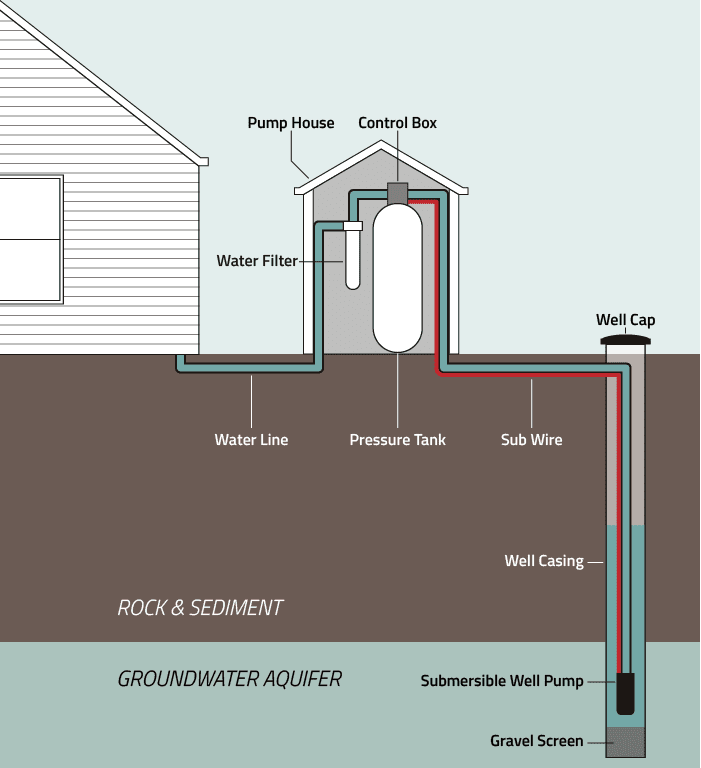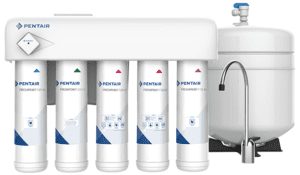Category: Water Filtration
Water filtration plumbers specialize in improving the quality of your home’s water supply. They offer a range of solutions to address impurities, bad tastes, odors, and harmful contaminants.
Benefits of a Water Filtration System
6 Reasons to Invest in a Water Filtration System.
Water filtration systems remove foreign impurities from fluids and gasses, so as to ensure they do not contain contaminants that could pose health threats in both home and work environments.
Whole home water filters improve the quality of water for drinking, cooking, and cleaning in your household by filtering out harmful toxins like lead, chlorine and bacteria as well as unpleasant odors that might otherwise pollute it.
1. Better Health
Your body relies on healthy water for proper functioning. By installing a filtration system on your tap water system, you can rest easy knowing it is safe and nutritious for you and your body.
Water filtration removes organic contaminants, providing your drinking water with an improved flavor and decreasing dehydration risks that may cause health issues like irritability, constipation and headaches. By drinking filtered water regularly you can ensure dehydration is avoided as well as receiving all the essential nutrients your body requires to function at its peak potential.
Water filtration systems offer many other advantages for homes. One such advantage is eliminating chemicals and heavy metals from your water source – some of these substances have been shown to be harmful even at lower concentrations, making water purifiers indispensable.
Filtration systems can save you money on energy costs by reducing scale buildup in appliances such as your water heater, dishwasher and washing machine – as well as soap scum buildup on dishes.
Filtering your water can also help you reduce plastic bottle use, with estimates suggesting filtration systems could eliminate up to 50 billion from being manufactured each year in the US alone – this would greatly benefit our environment as plastic can take up to 450 years to decompose!
Filtration systems also make your own reusable bottle which is much cheaper than purchasing bottles of water from retailers.
2. Better Skin
Water has more benefits than simply keeping you hydrated: it soothes skin conditions and keeps hair strands conditioned and healthy. Unfortunately, drinking unfiltered tap water exposes you to harmful bacteria as well as contaminants like chlorine, copper, lead and arsenic.
These are chemicals which strip oils from skin surface cells, leaving behind dryness or flakiness behind in their wake; additionally making lathering soap difficult leaving behind tight and itchy feeling skin after each wash session.
Filtered water is an effective way to rid yourself of potentially hazardous substances in your home environment. Filtration methods typically combine electrochemical (alkaline and water ionizer), sediment and mechanical filtration and reverse osmosis.
They all provide beneficial results, with reverse osmosis being particularly powerful at eliminating most dissolved substances by forcing water through a semipermeable membrane at high pressure and forcing most out.
Your ideal water filtering system depends on your individual needs. If preserving essential minerals is of concern to you, look for systems such as Aqua Tru that will preserve healthy ones while filtering out contaminants.
Otherwise, carbon-based systems might work better for you; portable filters can even attach directly to faucets for convenient shower and kitchen use – saving both money and the environment. Not to mention keeping clothes and dishes cleaner longer!
3. Better Cooking
Water filtration systems remove chlorine from drinking and cooking water, improving its flavor. Chlorine can ruin pasta, turn food gray and even inhibit yeast used in homemade bread baking – so making drinking half your weight in ounces every day much simpler when it tastes delicious!
These systems can extend the lifespan of your appliances by eliminating contaminants that build up over time, such as dishwasher, washing machine, coffee maker or ice machine.
Unfiltered water contains chemicals which erode away at these machines’ parts, as well as scale deposits which cause increased energy bills due to harder working devices due to scale buildups.
Having a water filtration systems in your home will save money when purchasing bottles of water, not only by eliminating their need, but also by helping reduce plastic waste and protecting the environment.
Better Beverage Choices
A filtration systems enable you to drink better tasting, healthier water without risking exposure to harmful contaminants and bacteria. They can also extend the life of appliances and equipment within your home.
Water is essential to human life, providing energy for bodily processes like metabolism. Unfortunately, our public water supplies contain potentially hazardous contaminants such as bacteria, pesticides, heavy metals and chemical solvents which could compromise our health.
Drinking pure water not only increases physical wellbeing, but it can also prevent dehydration. Furthermore, it contributes to maintaining a healthy weight and fortifying immunity systems.
Water filtering systems can remove many chemicals found in drinking water that could otherwise contribute to serious health conditions or even lead to premature deaths.
There are various water filtration systems on the market, such as activated carbon charcoal filters designed to fit in pitchers or attach directly to faucets; ultraviolet (UV) light units; reverse osmosis systems or water distillers (whole system or portable counter) All these options can help reduce exposure to over 2,100 known toxins found in drinking water sources.
Water filtration systems provide the optimal way to safeguard yourself and your loved ones against the dangers posed by impure drinking water, making a wise investment that will more than pay for itself within years.
5. Better Budget
Water filtration systems remove harmful contaminants from your tap water to help ensure it remains safe for consumption and appliances to run efficiently. Furthermore, filtering systems may even lower energy costs by preventing scale build-up in appliances like washing machines, coffee pots, and dishwashers.
Home water filtration systems can be significantly cheaper and better for the environment than purchasing bottled water, requiring far less plastic (which takes centuries to biodegrade). Filtration systems also reduce waste by filtering your own water that can then be stored in reusable bottles.
Another great benefit in terms of improving the taste of your water, encouraging more frequent consumption – essential to our overall health. Water filtration can also make your dishes appear cleaner by eliminating soap scum, saving both time and money on cleaning tasks while making your home more inviting.
These systems come in different sizes and prices, all designed to improve the quality of your tap water. If you want more information on what kind of filtration system is best suited to your home, consult a water specialist.
They’ll perform a free analysis of your tap water before providing recommendations as well as installing one system throughout your property.
6. Better Environment
By having one of these filtration systems, you will help the environment by filtering out pollutants and other potentially hazardous substances from our drinking water, thus helping prevent health problems such as digestive illness or skin infections while also decreasing plastic bottle waste production.
They provide a great benefit to your plumbing and appliances by eliminating mineral build-up in our pipes, which can damage them and lead to other issues. Furthermore, these systems reduce bottled water consumption thus saving money both on purchasing and disposing of bottles.
Having a system also helps us in our effort to efficiently clean clothes, dishes, and bathrooms more effectively by eliminating contaminants that leave spots and streaks behind. They reduce soap scum build-up so you’ll use less soap when washing dishes and clothes.
Water filtration systems also benefit our plants and animals, providing them with access to fresh and clean drinking water for drinking purposes and other uses. This can improve meat and dairy product quality as well as promote healthier plant growth indoors.
Additionally, these filters remove heavy metals, chlorine and other impurities from drinking water which benefits both animal health and human wellbeing.
The Plumber You Can Trust
At Discount Plumbers, we strive to provide the highest quality plumbing and drain cleaning services in Minneapolis and its surrounding metro-areas. Our team of certified experts have years of experience and are committed to delivering outstanding results every time.
If you need a water filtration system installed in your home or business. don’t hesitate to call us today at the number below. Or if you prefer, Contact us here via our webform. We’re here to help and save you $$$.







